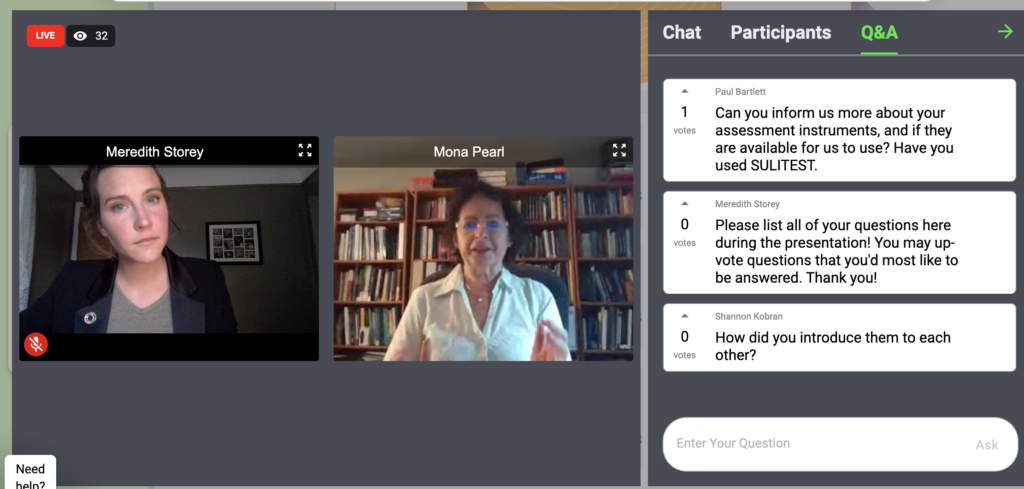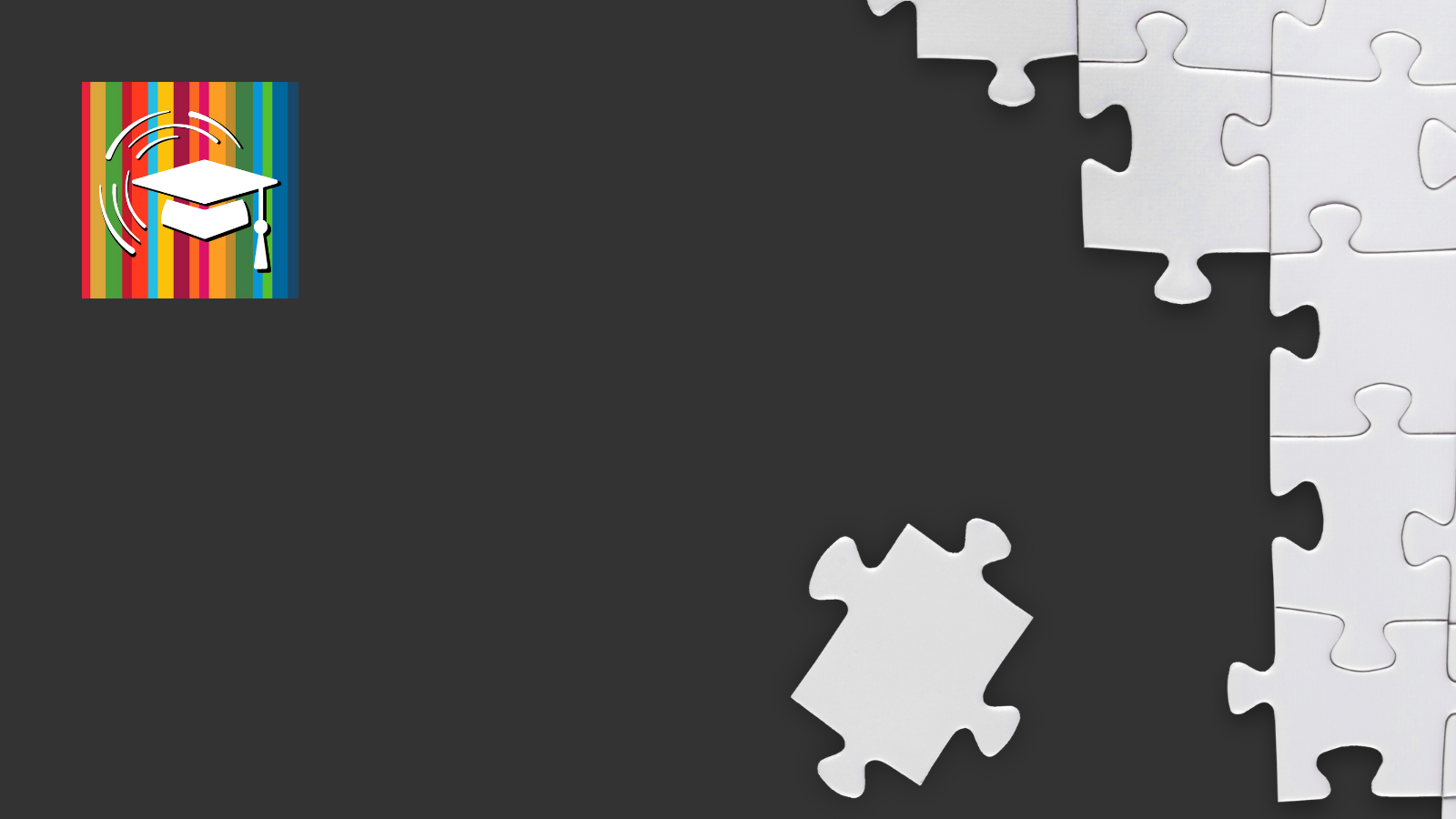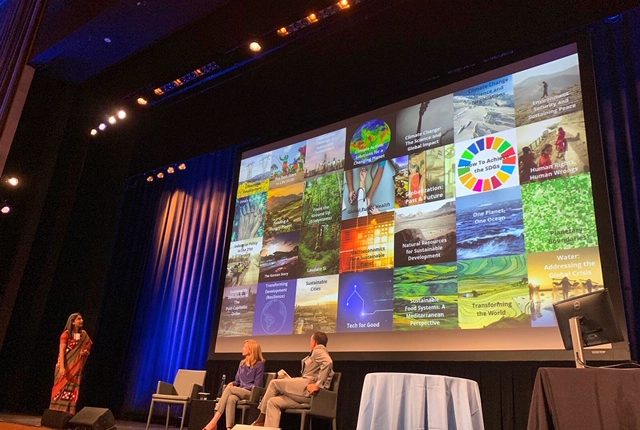The Sustainable Development Solutions Network’s 8th annual International Conference on Sustainable Development took place online from Monday, September 21st through Tuesday, September 22nd, 2020. For the first time ever, the SDG Academy worked with other members of the SDSN network to coordinate a research theme and serve on the Scientific Committee. The theme, “Interdisciplinary Approaches to Educate for Sustainable Development,” sought to present and discuss innovative ways of delivering education and engagement that enables and empowers students and future decision-makers to analyze and confront the interrelated challenges of the SDGs.
A researcher myself, as well as a member of the SDG Academy team, I was enthusiastic about this theme and passionate about getting interdisciplinarity for sustainable development on the ICSD research agenda. My own Ph.D. in social accounting and business education for sustainable development gave me a strong background in the work of businesses and business schools in the space. Co-hosting this research theme provided a wonderful opportunity to remove myself from the business school ivory tower to truly see interdisciplinarity across many themes of study, schools of education, and regions of the world. The amount of critical research in the space really blew me away.
This was the very first time that the SDG Academy has co-organized a research theme at ICSD, but it won’t be the last! We enjoyed a tremendous turn out from applicants, resulting in powerful and positive dialogues across the different parallel sessions.
Contributions presented across the theme’s four sessions discussed experiences from the perspectives of educators, students, and practice. Presentations included:
- Innovative interdisciplinary approaches to the development of programs with a particular emphasis on sustainable development and the UN SDGs.
- Practice-based student engagement opportunities in sustainable development programs.
- Formal, informal, or non-formal interdisciplinary approaches to educating and engaging students in sustainable development.
- Student research, advocacy, or action for sustainable development on their campuses, in their local communities, nationally, or globally.
The “Interdisciplinary Approaches” theme received almost 100 submissions overall, with 23 final oral presenters and 42 poster presentations. The presenters represented 28 countries around the world (and 90 total researchers, when you account for all co-authors)!
Thematic parallel discussions
Submissions touched on a number of impactful subjects, and the dialogue in each sessions’ Q&As was quite novel.
The opening session, Parallel 1, featured content from SDSN partners in Australia, New Zealand, and the Philippines from presenters Elizabeth Sidiropoulos, Richard Deanne C. Sagun, Noor Fatima, and Samantha Leonard. The hour of open discussion here centred on the contributions of educators in secondary and tertiary education, focusing on the role of agency and systems thinking in ESD.
Co-organizer and Parallel 1 host Aida Guerra, Vice-Director and Associate Professor of the Aalborg Centre for Problem Based Learning in Engineering Science and Sustainability at Denmark’s Aalborg University reflected that “Sustainable development is the thread line across all presentations and discussions. In interdisciplinary approaches to educate for sustainable development it was possible to go beyond the thread line, share knowledge and experiences on how different parts of the world implement innovative practices, reflect on trends, needs and change, and collect evidence to educate for the future.” This wide-reaching theme brought in researchers from a diverse number of countries and disciplines, illustrating the truly interconnected nature of this area of research.
The second session, hosted in Parallel 3, was led by Kate Thorton and Alicia Powers of Auburn University, USA, and featured Alessandro Galli, E. Alaphia Wright, Eugene Eteris, Giulia Sonetti, John Telesford, Maiken Winther, and Montserrat Koloffon Rosas. This session had well developed themes echoing the systems thinking approach stressed in Parallel 1. It also developed a call for strengthening the disciplines in order to contribute to the overall narrative of interdisciplinary ESD.
Session three, hosted in Parallel 4, shared research from Jacqueline Salmond, Rhianna Rogers, Paola Visconti, and Hadiza Hamma. The presentations and open discussion addressed teaching tools, classroom development, and case studies around sustainability and the SDGs. The practical lessons and pedagogies shared in this discussion advanced the ideas of interdisciplinary teaching methods for sustainable development in a very thoughtful and practical way.
I was proud to host the final thematic session during Parallel 5, which was chalked full of presenters with little time for open dialogue beyond the individual presentations. However, the research discussions covered a number of diverse and thoughtful subjects, such as the ethic of apes, design-thinking affordances, measuring global sustainability impact, pandemic experiences and solutions, local narratives of change, and online collaborations beyond the traditional classroom setting. Each discussion was quite novel in its findings and shaped a piece of the interdisciplinary narrative beyond the structure of formalized education. Presenters in this session included Aaron Redma, Diane Pruneau, Gregory Tagu, Jessica Vitiritti, Milena Popov, Mona Pearl, Paul Bartlett, and Jordan King, whose paper “Pursuing the Sustainable Development Goals through Teaching and Learning: A Review of Interdisciplinary Research in Higher Education,” won the best paper award in this thematic category. King’s paper was a true literature review, capturing the work of interdisciplinary research in higher education around the world.

Each session provided great insights and thoughtful discussion around the themes of interdisciplinary, sustainable development, and how we conceptualize these issues in our own teaching, research, and overall pedagogy. Many thanks to all who presented and attended this conference theme.
My fellow research committee members and I were overwhelmed by the positive response and support we received from presenters and participants alike! We hope to be able to carry the discussions forward through , in publication of research, in future events in this space, and in the new connections formed at this conference.
What’s next?
The conference theme was affiliated with an upcoming call for contributions in the International Journal of Sustainability in Higher Education (IJSHE), a leading journal in the area of sustainable development. The aim of IJSHE is to “provide up-to-date information on new developments and trends on sustainability in a higher education context, and to catalyze networking and information exchange on sustainable development as a whole, and on the SDGs in particular, on a global basis.”
The call for contributions is open until October 31, 2020. Those interested in contributing can learn more here.


